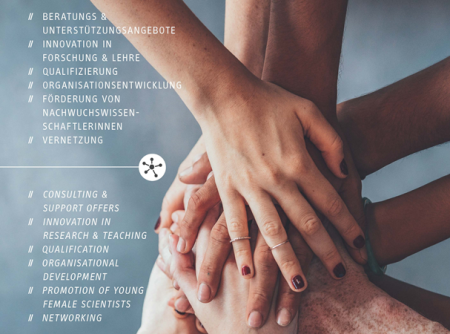Newsletter January 2021
Latest News |
|
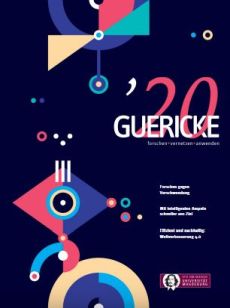
|
Science to read
The new issue of the research journal GUERICKE'20 is out. On more than 100 pages, interested readers can immerse themselves in the exciting universe of science at the university. In the now 6th issue of the magazine, 12 articles written by science journalists give a vivid impression of what researchers at OVGU achieve through their curiosity, vision, perseverance, willpower and team spirit, and vividly show what they are researching, how they arrive at findings and what drives them. This year's edition focuses on the importance of science for social change. Whether in matters of mobility, energy, climate or resources, the transformation processes and upheavals determined by digitalization and demography must be defined and shaped. The research magazine is available online and as a free print copy from the university press office.
|
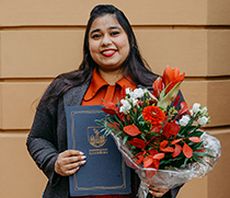
|
Computer scientist from India receives Guericke scholarship
Saijal Shahania has been honored this year with the Otto von Guericke Scholarship, which is awarded jointly by the city of Magdeburg and OVGU. She comes from India and has been studying Data and Knowledge Engineering since October 2018. She is also a successful tutor in the courses "Machine Learning" and "Deep Learning", among others. In addition, the student works as a software developer on data science assignments. This enables her to apply the research methods she has learned in her studies to practical problems and thus achieve research results. In addition, Saijal Shahania is involved in the Academic Club of the Faculty of Computer Science. She takes on tasks in the organization and implementation of events, such as the Alumni Talk or panel discussions. Another format she is in charge of is the discussion group "Create your Master Thesis 2.0" with faculty members and new graduates, which focuses on aspects of finding topics for theses, the requirements for a master thesis and related topics. More
|
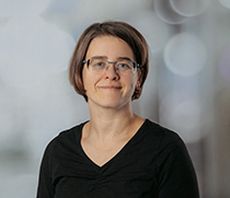
|
Family representative elected to the board
OVGU's Family Representative, Dr. Loreen Lesske, has been elected spokesperson of the Netzwerk Familie in der Hochschule e. V. for the next two years. The network is an association of institutions that have signed the Charter Family in Higher Education, in which all 120 members make a voluntary commitment to pursue and implement demanding standards of family orientation. Dr. Lesske will focus more on networking the member institutions in the association. Best practices are to be made more visible to all members, and synergies are to be expanded even further. Serving on the board offers the opportunity to make efforts and successes for family-friendly universities more visible and to convince other universities of the commitment to family-friendly study and working conditions. More information
|

|
State program for a gender-equal Saxony-Anhalt 2020
On December 1, 2020, the cabinet approved the new "State Program for a Gender Equitable Saxony-Anhalt 2020." Equality Minister Anne-Marie Keding said the state program is a major step toward achieving real equality between women and men and reducing disadvantages based on sexual identity. The new state program combines three largely independent program areas in terms of content and organization. For the first time, the State Program 2020 contains a joint mission statement for a gender-equal Saxony-Anhalt with strategic specifications and eight equality policy state goals. The state's equality policy goals concretize the equality mandate of the Basic Law and the state constitution as well as the prohibition of discrimination on the basis of sexual identity. The mission statement thus provides content-related orientation for the professional work of the entire state administration and also applies beyond the future measures of the state program. Detailed information can be found at https://lsaurl.de/lpgglsa
|
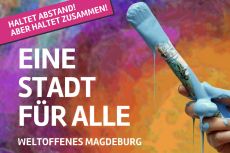
|
Action Week "One City for All" - Digital and at a Distance
In 2021, a sign will again be set against racism, hatred and exclusion. The action week "One City for All" is taking place until January 27: Digital and with offers at a distance. "Keep your distance! But keep together!" is the slogan, with which the masks for the planned actions are also provided. For the complete program and current adjustments, please see the page Initiative Weltoffenes Magdeburg
|

|
One Billion Rising - one billion rises on February 14. Be a part of it!
The year is still young and yet One Billion Rising Magdeburg starts with the first important action this year, the "One Billion Rising Day" (OBR) on February 14. You haven't heard about the "One Billion Rising Day" yet? This day is all about global solidarity with women affected by violence. Victims should know that they are not alone in their journey and that they are being thought of. How is this put into practice? By dancing together in public places all over the world. People worldwide are encouraged to get out on February 14, dance, stand up and demonstrate collective strength. Flash mobs are taking place all over the world. This year, unfortunately, there is not the opportunity to meet and dance with many people in public places. OBR Magdeburg will not allow Corona to stop this action, so the organizers have thought of another way so that as many people as possible can dance along. And the great thing is, in this format people can dance together beyond Magdeburg. In addition, a video of the choreography was recorded, which should encourage many people to dance against violence. Here you can find the video with the choreo for One Billion Rising: https://youtu.be/HfmV-mGE1NU Dance to the song "One Billion" by Sookee to the choreography from the vdeo or to your own choreo, film yourself doing it, take photos of yourself, your demo posters, write "Stop Violence" on your hands, make selfies, Boomerangs, TikToks - there are no limits to your creativity. Send your video or photos via https://wetransfer.com/ to obr-md@gmx.de. The organizers will then edit a video in cooperation with Offener Kanal Magdeburg, which will be published on their social media channels on February 14 at 2pm. Please note: Film yourself in landscape format with a good resolution (e.g. 720 pixels: 1,280 x 720). Let's make a statement against violence against women and girls again this year and you're in! You have questions or ideas? Feel free to contact us at: Facebook: https://www.facebook.com/OBRmagdeburg/
|
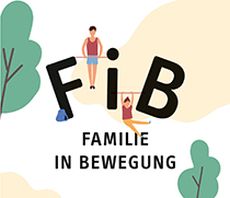
|
"Family in Motion" from January 2021
"Family in Motion" brings parents and children together to do sports since January 2021. The calisthenics facility in front of Building 40 on Zschokkestraße will be the focus of the activities. The sports center, the family office, the company health management and the sports science department of the OVGU have jointly initiated this third-party funded project. Calisthenics is a form of training that is performed using only one's own body weight. It is therefore ideal for improving mobility and strengthening the entire body. Due to the current Corona situation, an online parent-child program is currently being offered. FiM is part of the initiative sponsored by Techniker Krankenkasse and the Allgemeiner Deutscher Hochschulsportverband adh "Bewegt studieren - Studieren bewegt! 2.0“. The courses are free of charge during the pilot phase. Further information and registration |
Grants and Prizes |
|
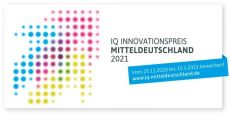
|
Digital into the 17th competition year of the IQ Innovation Award
The IQ Innovation Award for Central Germany is entering its 17th round. Applications for the IQ competition, which is endowed with around 70,000 euros, can be submitted online in the five clusters Automotive, Life Sciences, Chemicals / Plastics, Energy / Environment / Solar Industry and Information Technology until March 15, 2021. The winners of the 17th IQ Innovation Award Central Germany will then be selected in a multi-stage jury process and announced at a festive awards ceremony on June 24, 2021. Further information and registration
|
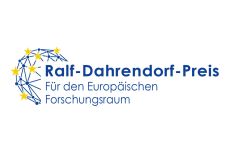
|
BMBF: Ralf Dahrendorf Prize for the European Research Area - application deadline extended
With the Ralf Dahrendorf Prize, the BMBF honors the outstanding achievements of scientists in European research projects and at the same time enables them to communicate their research work directly to society. The award of up to 50,000 euros is intended to give prize winners the opportunity to implement creative concepts in science communication. The application period has been extended until February 26, 2021. Further information
|
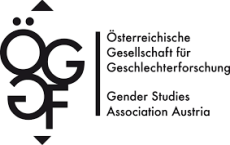
|
Contributions welcome! 8th Annual Conference of the Austrian Society for Gender Studies
Processes that bring about intersectional gendered invisibilities are not only extremely complex, but also deeply ambivalent. Being or becoming visible is a prerequisite for being perceived politically and socially, but visibility does not automatically translate into political agency. Moreover, what has been won in terms of rights and social acceptance never remains self-evident. Those movements that have dedicated themselves to the fight against "genderism" provide only the most obvious examples of this. The "un_visibility" is a complex of problems and a process that takes place against the background of far-reaching cultural and social changes on a global scale. These are driven, among other things, by the economization of the social, by (forced) migration, religious pluralism, transnational protest movements, new media technologies and the narratives they generate. The "visible" is not simply given, but the historically specific and contingent result of processes of making visible - and, in turn, of making invisible at the intersections of the public and the private that have become porous. Furthermore, invisibility can also be analyzed under specific conditions as a strategy of resistance and critique. For the 8th annual conference of the Austrian Society for Gender Studies on September 20-22, 2021 (online), the conference organizers welcome submissions that explore the ways in which gender-specific and intersectional forms of invisibility are produced and how this can be thought of in the context of power (constellations) and resistance. Furthermore, contributions that explore the possibilities of transformative strategies for the development of agency, as well as artistic interventions, are sought. The annual conference aims to provide a venue for lively exchange about changing gender relations in the context of interacting power relations. For reasons of plannability in the precarious times of the pandemic, the conference will be held online. In particular, contributions are encouraged in the following formats:
Please explicitly assign yourself to one of these formats with your abstract. If necessary, the conference team will approach you and make alternative suggestions for assignment or implementation. In addition, innovative proposals beyond these formats are welcome. Please contact the organizing team directly with any questions: oeggf.tagung2021@univie.ac.at. Please submit your contribution exclusively online in German or English via the conference website http://oeggf2021.univie.ac.at by March 8, 2021. Here you will also find detailed information about the conference and the call.
|
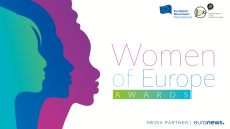
|
Women of Europe Awards presented
On December 2, the European Movement International (EMI) and the European Women's Lobby presented this year's Women of Europe Awards. Among the winners is Sviatlana Tikhanovskaya, who was awarded Woman in Power for her engagement in the Belarusian opposition. An overview of all winners can be found here
|
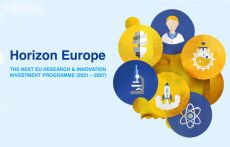
|
National launch event for the EU Framework Program for Research and Innovation "Horizon Europe"
The new year also sees the launch of the new EU framework program for research and innovation "Horizon Europe". A national launch event will take place in Aachen on February 8, 2021. The Federal Ministry of Education and Research and the Ministry of Culture and Science of the State of North Rhine-Westphalia invite all research and innovation stakeholders in Germany to participate online. High-ranking speakers will discuss the new orientation of the program and present the new funding opportunities. Among other things, it is envisaged for Horizon Europe that gender equality will be a cross-cutting theme throughout the program. Furthermore, the "gender dimension in research and innovation", i.e. the consideration of biological and socio-cultural differences between men and women, is expected as standard in every call for proposals. A new feature of Horizon Europe is that institutions wishing to apply must submit a gender equality plan for their institution. It will be possible to apply at the beginning of 2021. However, you can already find out more about the new program on the new Horizon Europe online portal. On the pages of the portal, you will find important information about funding through the 9th Framework Program for Research and Innovation for the program period 2021-2027, as well as about the consulting and training services. The first calls for proposals for Horizon Europe are expected in April. To the Horizon Europe Portal
|
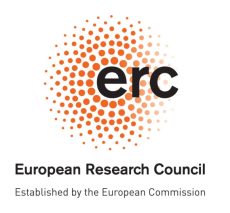
|
ERC: New "funding page" and instructional videos on how to apply published
The ERC has launched a new website with information for potential applicants on the various funding opportunities. It includes links to the contact details of the ERC National Contact Points, FAQs, helpful videos for applicants ("ERC Classes" see below), documents, etc. In addition, at the end of November, the ERC published a series of new instructional videos under the name "ERC Classes". The videos, seven in total, are intended to provide a practical overview of the application process (How do I write Part B1 and B2?), the review process, and also on how to prepare for interviews in an entertaining way. The videos are located on the ERC's YouTube channel. Videos on various topics are regularly published there, such as help and tips on "public engagement" or testimonials from successful grantees. |
Events |
|
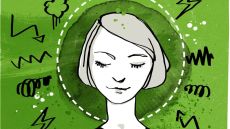
|
Courageous & Strong. Communicate confidently as a woman | Online seminar in February
Surely many women know this: Challenging communication situations in voluntary or political everyday life, in which a woman feels put under special pressure to perform and therefore feels uncomfortable. This can be, for example, a heated discussion in which you don't get a chance to speak or a "stupid remark" to which you don't know how to respond well. But it can also be a presentation in front of an important audience where your voice threatens to fail you. That is why the expectations on women and their rhetorical ability to act are very high, especially in a male-dominated environment. In this online seminar, you will work together to develop, discuss and try out ways to face these situations with a courageous and strong attitude. With the help of video analysis and constructive criticism, you will train your self-awareness. In practical exercises you will learn, for example, how to use your voice powerfully, how to express yourself spontaneously and eloquently, or how to adopt a self-confident posture. The online seminar takes place in several parts on the following dates: 1st part: 04.02.2021, 17:30 - 20:30 hrs For more information on the event and registration formalities, please click here.
|
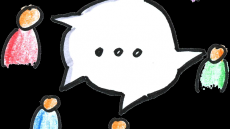
|
Discrimination-sensitive language | Online seminar on February 4, 2021
"Words can change the world.", "The pen is mightier than the sword.", "Language is an expression of the mind.", "Words hurt more than actions." These are just a few common sayings that express the power of language in our lives. Words transport emotions, opinions, world views, trigger feelings and can exclude entire groups of people or completely negate their existence. Because language is never neutral, it often reproduces discrimination, stereotypes and racism. Discrimination-sensitive language use attempts to avoid exclusion of any kind - be it due to gender-appropriate formulations, by abandoning outdated sexist and racist terms, or similar negatively charged expressions in the field of inclusion. In this seminar, you will explore the questions of what discrimination-sensitive language can look like in concrete terms. Whether there is discrimination-free language at all, who feels addressed or included when and, above all, what weighting discrimination-sensitive language has in our society and in our immediate everyday life. And all this with many exercises, practical examples and best practice tips. For more information about the event and registration, please click here.
|
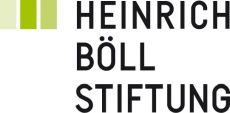
|
Indispensably Feminist - 30 Years of East Berlin Women's Centers | Online Lecture on February 15
"30 years of East Berlin Women's Centers" provide the occasion to focus on the history and future of these places and their women's political or feminist work. Astrid Landero (former project manager Paula Panke) and Anne Wizorek (freelance consultant for digital strategies and author) are two generations of feminists who will discuss the social necessity of women's centers and the development of feminism. This series is organized by the EWA Women's Center in cooperation with the Bildungswerk Berlin of the Heinrich Böll Foundation. To register for the online lecture, click here
|

|
Confidently into the limelight. Body and presence training for women on February 20 in Kiel
Confident and sovereign appearance can be learned. Many women find it difficult to communicate their own achievements clearly, to show professional competence and to present themselves well. You will develop sovereignty and convincing communication in this seminar. The seminar is not only dry theory, but offers enough space to train the learned techniques, (with and without video analysis), so that not only theoretical knowledge is taken home. The seminar contents and the link to the registration can be found here
|

|
Democracy Needs Feminism | Online Seminar on February 24, 2021
The online seminar offers an introduction to how anti-feminism can be countered online in social networks and strengthens the participants' confidence to act. It alternates between audiovisual inputs and text-based discussion methods. Further information and the possibility to register can be found here
|

|
Online conference "Collecting Sexualities. Of bodily practices, relationships, and cross-border objects."
On February 24-25, 2021, the online conference "Collecting Sexualities. Of bodily practices, relationships and transnational objects" will take place. The Deutsches Hygiene-Museum Dresden cordially invites all interested parties to participate. When people talk about "the" pill, everyone knows what is meant. For some years now, sex toys have been available in drugstores in various designs and without discreet packaging. These and other objects are present in everyday life, shape sexuality and are at the same time an expression of changing orders of the sexual. Sexuality things also find their way into museum collections or have been there for a long time. A closer examination of them makes it possible to learn more about the extent to which they are not only a reflection of changing discourses around sexualities, but also appear beyond that as stubborn objects (Peter Hahn). The focus of the conference "Collecting Sexualities" is the material culture of sexualities. The two-day online event brings museum practitioners and scholars into conversation with each other and addresses the question of which strategies and methods are suitable for mapping and researching the diversity of sexualities in collections and archives. In addition, objects such as sex robots, condoms and dildos will be presented and analyzed in more detail. The conference takes place within the framework of the BMBF-funded research project "Things and Sexuality. Production and Consumption in the 20th and 21st Century", which is carried out in cooperation with the Chair of Sociological Theories and Cultural Sociology at the Institute of Sociology at the Technical University of Dresden, the Institute for History, Ethics and Philosophy of Medicine at the Hannover Medical School and the Gay Museum Berlin. There is no participation fee. Although the conference will take place virtually, the available places are limited. Therefore, please register bindingly by February 8, 2021. You will find the possibility to register and the program under the link https://www.dhmd.de/veranstaltungen/online-tagung-sexualitaeten-sammeln/
|
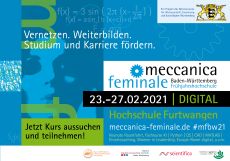
|
Safe your place now: meccanica feminale in February 2021 ONLINE
The meccanica feminale invites female students and scientists from mechanical engineering, electrical engineering, industrial engineering, medical technology and related disciplines in the STEM field to exchange ideas and experiment together from February 23 to 27, 2021. The main topic of the upcoming meccanica feminale is aerospace technology. The meccanica feminale enables participants to gain further qualifications in an individual and learning-friendly atmosphere among women. The opportunity to network and get to know each other is provided by the program items in the supporting program, such as the digital networking evening, a joint mission in the Escape Room or a digital yoga session. On Career Day, participants are prepared for the working world. They can get advice on their career and life planning in a one-on-one impulse coaching session, attend courses on salary negotiation and retirement planning, or get to know EnBW Energie Baden-Württemberg AG on a digital power plant tour. The registration deadline has been extended to Jan. 25, 2021, after which remaining places will be allocated. The course offering and the registration link for meccanica feminale 2021 can be found on the homepage www.meccanica-feminale.de
|
|
Final Symposium "Doctoral Studies in the IT Subjects: Advancement through Networking - Exchange - Consulting"
What is the current situation of female IT doctoral students - what are their working conditions, support needs, career opportunities and future visions? And (how) do IT doctoral candidates differ from them? At the symposium, the joint project "Female Doctoral Students in IT (DokIT)" will present the results of the survey, the support services developed for female IT doctoral students on the website and the cloud platform tested in the project. The symposium will take place online on Friday, March 12, 2021. Further information can be found in the flyerand the program description of the project on the homepage: https://dokinit.de/pages/symposium21
|
|
|
Gender and antifeminism! Dealing with anti-feminist statements. Online workshop on March 14, 2021
"Gender mania - early sexualization - re-education!" In targeted attacks on "feminism and gender", right-wing populist circles have been seeking to connect to debates about gender roles and gender relations in society in recent years. This struggle for interpretive sovereignty poses great challenges to our society and especially to people in educational work and politics. The workshop aims to impart knowledge and skills in the field of antifeminism to gender equality officers and all interested parties at Saxon universities and to support them in dealing appropriately with antifeminist statements and disturbances. During the full-day training - based on practical examples - situations will be analyzed, options for action discussed and how to deal with anti-feminist statements trained. The main focus is on strengthening and making visible one's own attitude. Participants are strengthened in their argumentation skills through a variety of methods. The goal is to develop a confident attitude and position in order to face the current headwind and defamation with self-assurance. The workshop will be led by Peps Gutsche and Nadja Kaiser from Gegenargument. Registrations are possible until March 4, 2021. Further information and the workshop flyer can be found here |
|
University and Politics |
|
|
Digital exhibition for the International Day against Violence against Women
Every year on November 25, the International Day of Action against Violence against Women, attention is drawn to the everyday nature of violence against women and girls. The goal is to identify societal grievances and human rights violations in Germany and around the world and to focus on strategies to combat those grievances. To this end, the Office for Gender Equality at the Westphalian Wilhelms University of Münster has created a digital exhibition entitled "Stop Violence Against Women." The exhibition highlights various dimensions of violence, provides important background information on the history of the day, and presents studies on violence against women in college and the workplace. Click here for the digital exhibition
|
|
|
Second report on Gendered Innovations published
A second report with numerous case studies on "Gendered Innovations" was published at the end of November 2020. The subtitle is "How Inclusive Analysis Contributes to Research and Innovation." The expert group, funded by the European Commission under Horizon 2020, presents examples from projects across a wide range of disciplines funded under Horizon 2020. Represented are, for example, health, artificial intelligence and robotics, energy, transportation, climate change and urban planning, as well as fair taxation and the COVID-19 pandemic. It also addresses core issues that will be central to clusters, missions and partnerships under Horizon Europe. In an interview in the journal nature, Londa Schiebinger once again explains the importance of gender for research and how the examples of her working group help to raise research standards to a new level. Accordingly, the Gendered Innovations websitehas also been updated; it now includes 40 case studies, general and subject-specific methods. A blog by one of the group's experts will now feature weekly posts on Gendered Innovations; the first post is about the diversity of Crash Test Dummies.
|
|
|
Gender differences in speaking time at scientific conferences
Gender differences at scientific conferences have been documented by a team of male and female geographers from the University of Passau in a study for the 61st German Congress of Geography 2019 in Kiel. In addition to evaluating the guest structure and the conference program, data on the size and composition of auditoriums, speaking times and discussion behavior were collected in 233 lectures. Clear conclusion: men talk more often and longer. To the study
|
|
|
The value of scientific writing for our time
As a contribution to the academic day #4genderstudies 2020, the blog interdisziplinäre geschlechterforschung publishes a conversation between Judith Butler and Dirk Schulz, executive director of GeStiK, Gender Studies in Cologne. Titled "There's no back to normal" their exchange kicked off GeStiK's current lecture series on the topic of "crisis." Because the conversation also outlined issues related to the ongoing attacks on - and even bans of - gender studies around the world, Judith Butler agreed to an editorial edit for gender-blog. You can read the conversation here:
|
|
|
Wissen_schaf(f)t. Whose power? Intersectional Perspectives on Precariousness and Discrimination in the Science Sector
We live in a society that is deeply permeated by discrimination. Science, as part of this society, is not free of discrimination either. Research institutions tend not to look at their own discriminatory structures. Between excellence and selection of the best, the myth of the university as an "enlightened institution" contributes to the individualization of structural problems and to the precarization of those working in science. At the same time, scientific research can produce knowledge that is critical of discrimination and contribute to dismantling discriminatory conditions. In particular, intersectionality research, which emerged from socio-critical movements, makes an important contribution to the analysis of discriminatory structures, but has so far been taken up too little in scientific research. Together with the scientists Dr. Denise Bergold-Caldwell (Marburg) and Prof. Dr. Katrin Pittius (Dresden), the Prevention Office for Discrimination and Sexual Harassment and gender*bildet of the Martin Luther University Halle-Wittenberg will discuss how discriminatory structures and precarization processes within the diverse group of scientists in the qualification phase can be viewed from an intersectional perspective. What are the potentials of intersectionality research to detect and analyze discriminatory structures in the academic world and the university as an organization? How can this potential be used? What strategies are available to reduce discrimination and precariousness in the career paths of academics? The contribution is part of the action day #4GenderStudies, which took place throughout Germany on 18.12.2020. The video recording of the talk is available at: https://www.youtube.com/watch?v=LHM4ktpXvaQ&fbclid=IwAR32TJbAGTDlRQrFmxpFU0MrjcMbwPs4hilqIPiamlIQXUc9xsn_kLvruw
|
|
|
Examples of the influence of gender in ERC scientific research projects
Gender is much more than the simple and traditional division into men and women. Gender issues affect all of our lives and the concept of gender is being reviewed and redefined. The European Community Research and Development Information Service (CORDIS) site has compiled examples from ERC projects that show how frontier research is advancing innovative ideas and perspectives on gender. It features the work of ERC-funded individuals whose projects work either within - or in several cases beyond - a variety of disciplines in the humanities and social sciences. Read more
|
|
|
Materials for the ERC workshop "Sex and gender dimension in frontier research" online
The European Research Council hosted a one-day virtual workshop on November 16. With presentations, discussions and, above all, exciting reports from ERC grantees on their gender-related projects, the high-ranking ERC shed light on various aspects of gender in diverse research areas. The individual sessions as well as the speeches of EU Commissioners Gabriel and Dalli are available online
|
|
|
COVID-19-A Mosaic: Policies of Life in Times of Corona Crisis
There are no epidemics without epidemic politics. The current Covid-19 pandemic is also embedded in social conditions and in policies of life: in policies that significantly change people's lifestyles through distance regulations, contact restrictions, home offices, school and daycare closures; in policies that determine which lives should be protected and which activities are considered systemically important; and in policies that transform a health crisis into an economic crisis with supply shortages and impoverishment. These politics of life mean that while the virus can affect everyone, not everyone is equally at risk from the virus or affected by policies to contain the pandemic. Homeless people, refugees, sex workers, single mothers, precarious workers, people with physical disabilities, the poor, prison inmates, and residents of nation-states with low public health care are in many ways more vulnerable and at risk than people whose work, living, and housing conditions are such that they provide widespread security even in the current emergency. The current Corona crisis highlights, as if through a burning glass, social contradictions and inequalities that were normality even before it. In order to make visible these multi-layered aspects of the unequal politics of life in the Corona crisis, a comprehensive and multi-faceted mosaic is needed. The University of Bremen has developed such a mosaic as an online platform that addresses the main issues raised. The extensive mosaic can be found at https://www.covid19-mosaik.de/.
|
|

|
Worth reading: JJ Bola on toxic masculinity
JJ Bola, street worker and author, was born in Kinshasa and grew up in London. In an interview with the taz about his newly published book "Don't be a man - why masculinity is a nightmare for boys," he talks about toxic masculinity and learned role models: "Obviously, we live in a society that privileges men over women and other genders. We hold on to patriarchal structures because they give us power. As long as there is someone below me whom I can dominate and who is worse off than I am, I feel strong. This overlooks the fact that men are more often victims of violent crime, more often addicted to drugs, and/or at risk of homelessness. Men also have a higher suicide rate than women. So instead of sticking to the patriarchal system, we should work for a more gender-equal society." Click here for the taz interview
|
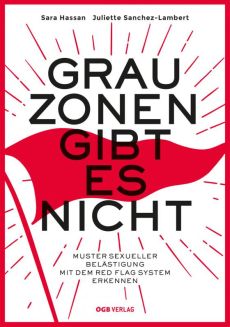
|
New publication: There are no gray areas. Recognizing patterns of sexual harassment with the Red Flag System
Busting the myth: "Is this still flirting or is it already assault?" - "That's a gray area, no one can judge that!" the book dispels Gray Zones Don't Exist. Recognizing Patterns of Sexual Harassment with the Red Flag System by Sara Hassan and Juliette Sanchez-Lambert. It describes the Red Flag System - an alert system that detects sexual harassment early, even in gray areas, by considering the entire context. The book builds on the accumulated knowledge of those affected and describes what goes on when people abuse their power. It gives victims as well as observers of sexual harassment tools to recognize abuse of power in time and to take action against it. The book can be ordered as a hardcopy for a fee or is available free of charge at: https://shop.oegbverlag.at/amfile/file/download/file/718/product/124298/ |

Thank you very much for your interest! You are welcome to forward the newsletter. To register, please send a message to gleichstellungsbeauftragte@ovgu.deor register on the Website. |







